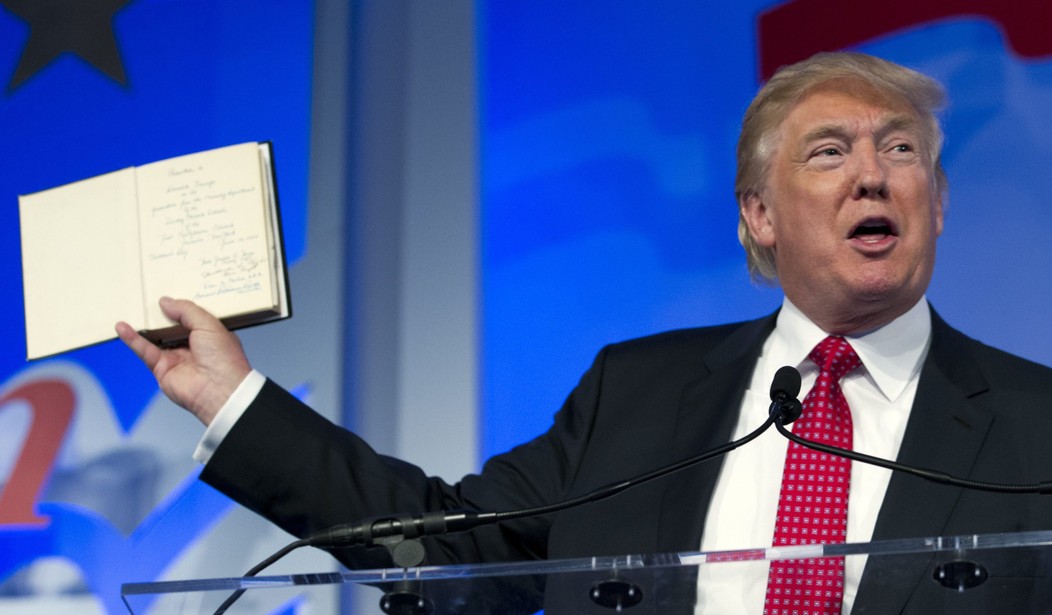With the leaders of both international Catholicism and of U.S. Southern Baptists raising doubts about presidential candidate Donald Trump’s Christianity, the question again arises as to what role faith should play in a good citizen’s political choices.
In considering the question, we must remember that our aim is not to judge the faith of others, but to properly examine our own.
Several months ago, Pope Francis made headlines by suggesting that Trump may be “not Christian.” For months, Russell Moore, who heads the public policy arm of the Southern Baptist Convention, has been openly opposing the billionaire and suggesting that no good “evangelical” Christian should possibly support him. (Ruth Graham at Slate wrote about the latter in a thought-provoking column on April 28.)
Moore wrote that Trump appears unacceptable because of his “spewing of profanities in campaign speeches, race-baiting and courting white supremacists, boasting of adulterous affairs, [and] debauching public morality and justice through the casino and pornography industries.”
Trump also has angered some traditionalist Christians by saying that he was “not sure that I’ve ever asked God’s forgiveness” and by a slew of somewhat awkward religious references such as calling a communion wafer “the little cracker” and calling one of Paul’s epistles “Two Corinthians.”
Some say that no man merits electoral support if he so obliviously dismissive of the tenets of what he claims as his own faith. Others suggest that no good Christian can electorally support somebody who is a very bad Christian, and that to do so makes the supporter himself a bad Christian, too.
I’m not sure we, individually, should be judging the Christianity of others. But I do think we should apply the test to ourselves. I will leave it to the consciences of others, and to God in adjudging those consciences, to determine if a candidate is so far beyond the pale as to put one’s own faith in doubt by supporting him. But I can look at the actions and statements of a particular candidate and say that I would violate my own understanding of my faith if I support him.
Consider Trump.
Russell Moore well summarized some of Trump’s failings. Any one of those failings would be worrisome; all of them together are, in my mind, disqualifying. But that list of Trump’s problems is only partial. Add to it his barely disguised incitements to violence at his campaign events (and excuses for the same); his campaign’s brutishness towards a manhandled female reporter by suggesting she was “delusional” and then refusing to apologize even after multitudinous definitive evidence showed that her basic claims were accurate; his ineluctable daily coarseness; his apparently pathological lying so habitual that fact checkers literally have trouble keeping track; his vicious (even by political standards) denigration of opponents; his hiring of campaign aides with shady pasts representing some of the most thuggish foreign leaders and his own affinity for thuggish leaders; his enthusiasm for convicted rapist Mike Tyson and for quotes by late Italian fascist leader Benito Mussolini; his advocacy of outright “torture” of suspected terrorists not just for information to save lives but for pure revenge; and his advocacy of deliberately killing wives and children of terrorists supposedly to teach terrorists a lesson.
As I understand my Christian faith – indeed, as I understand the entire Judeo-Christian intellectual, cultural and religious worldview – there is no way I can possible call myself a good Christian if I support such a candidate. I do not believe tests of faith should be my primary considerations for political figures. I do not believe that only Christians can be good office-holders. I do not believe that I can easily judge another man’s soul. But I do believe that good character is essential for the exercise of a public trust, and I do believe that some actions are so “unchristian” as to be disqualifying.
If I believe those things, yet don’t abide by them, then I am clearly betraying my Christian faith. My faith must at least seriously inform my private and public actions, and that faith must not be made forfeit.
Quin Hillyer is a veteran conservative columnist. He has an undergraduate degree in Theology from Georgetown University and has served for years in various forms of ecumenical lay leadership.









Join the conversation as a VIP Member